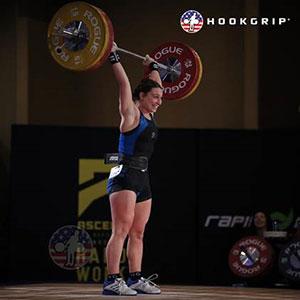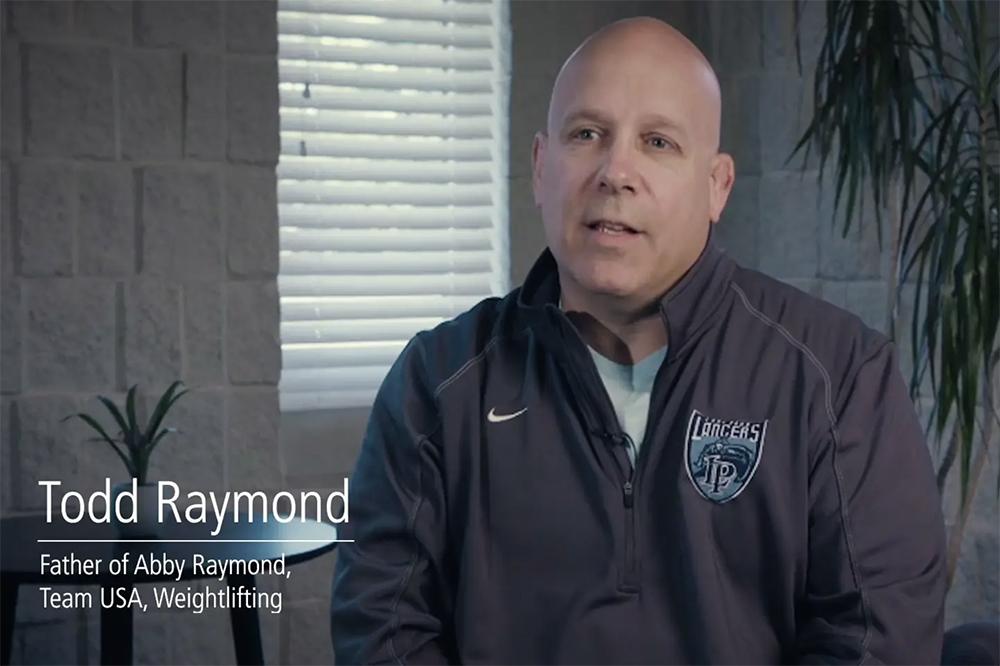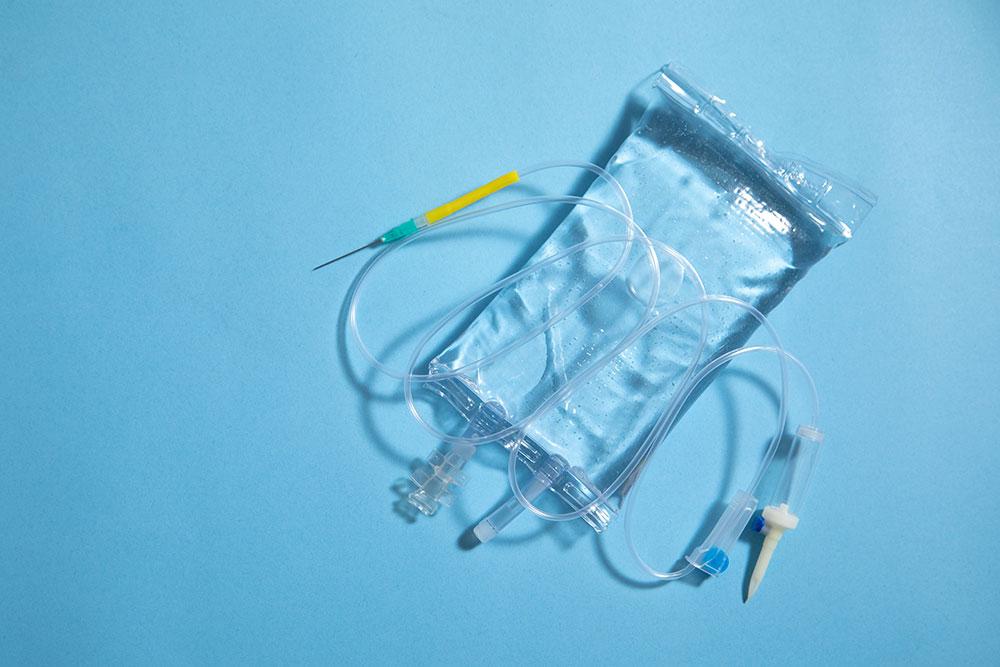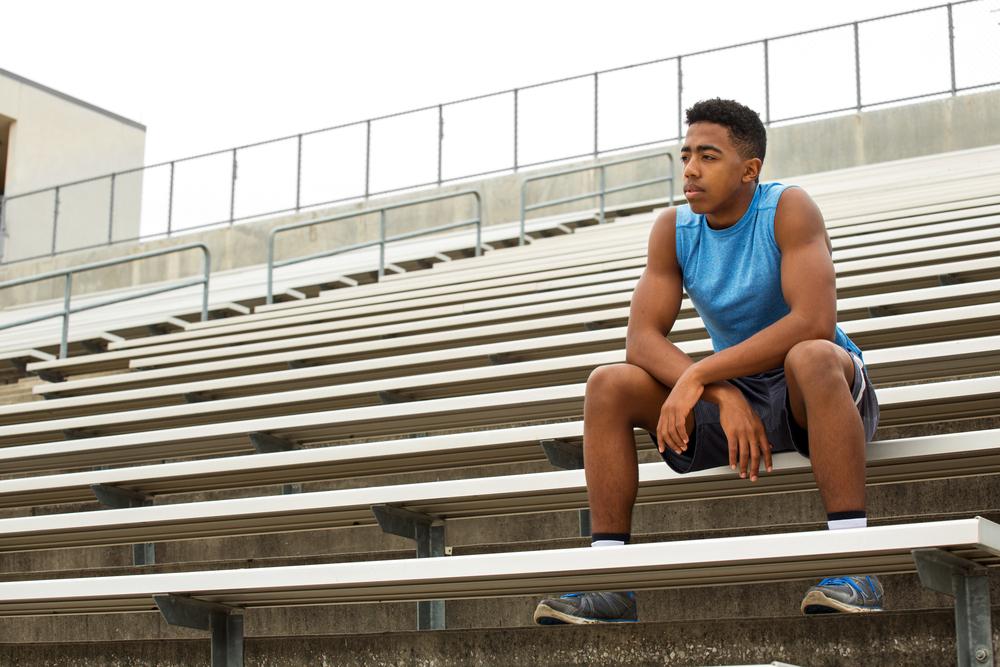 Content Warning: This article contains mentions of bullying.
Content Warning: This article contains mentions of bullying.
Worried about your athlete’s wellbeing but not sure how you, as a parent, can help? Maybe your athlete has asked for more space, or maybe a coach or trainer has policies about parents’ involvement. There should be boundaries, of course, since athletics also help kids develop a strong sense of self and independence, but as a parent, you still need to monitor their overall health and wellbeing.
Here, TrueSport Athlete Ambassador Abby Raymond and her parents, Cari and Todd, join the U.S. Anti-Doping Agency’s Chief Science Officer, Matt Fedoruk, PhD, to share a few pieces of advice for helping young athletes perform at their best while protecting their mental and physical wellness.
Create your own open-door policy
First and foremost, creating strong lines of communication between yourself and your athlete is key. Your kids should feel as though they can talk to you about anything, from anxiety to bullying to supplements to how puberty is impacting them physically and mentally. Fedoruk is a fan of normalizing family dinners where no topic is off the table, and his young daughters can feel comfortable asking him anything. Sometimes, he says, they have moments where they don’t want to practice or compete. Those times can be challenging as a parent, especially if you’re heavily invested in the sport or you know that your young athlete tends to change their mind within days. Still, listening to them is critically important, Fedoruk says. You may realize that they don’t want to play because of a comment the coach made, or another player on the team is bullying them. Or perhaps, they’re simply over-scheduled and need a break.
Pay attention to signs that something is wrong
As a parent, it’s important to be on the lookout for small changes in behavior that can point to something bigger being amiss. If your athlete is suddenly less enthused about competing, or seems more withdrawn, this could be a sign that they’re being bullied by a teammate or a coach has been treating them poorly. It could also be a sign that something is physically amiss: Overtraining can cause fatigue, or an athlete might be struggling to hide an injury.
Help your athlete avoid risks for doping
 Competing well and competing clean are synonymous. And when it comes to young athletes, parents play a major role in helping their athletes make informed decisions in order to avoid substances and methods prohibited in sport. For young athletes subject to anti-doping rules, even seemingly innocent substances like supplements and inhalers have to be carefully evaluated.
Competing well and competing clean are synonymous. And when it comes to young athletes, parents play a major role in helping their athletes make informed decisions in order to avoid substances and methods prohibited in sport. For young athletes subject to anti-doping rules, even seemingly innocent substances like supplements and inhalers have to be carefully evaluated.
Abby Raymond and her parents were diligent about understanding these rules, but even so, they ended up placing too much trust in a supplement. After accepting a sponsorship from a family friend who had recently started a supplement company, 14-year-old Abby tested positive for a banned substance as the result of an anti-doping test. She and her parents were shocked at the result, and later found that it was caused by a tainted supplement that the manufacturer and friend promised was safe. Since then, Abby and her parents have worked with TrueSport and USADA to share her story as a cautionary tale.
Prioritize a food-first approach
“It takes a little bit more effort to design an effective nutritional plan, but at the end of the day, the mental and physical benefits to a young athlete’s performance, growth, and recovery are optimized with a food-first approach to fueling,” says Fedoruk.
Supplements are highly processed, and in addition to the risk of tainted supplements, some may cause gut distress, and some may be contaminated with heavy metals and pharmaceutical-grade drugs, Fedoruk notes. “Those could have serious side effects for a young athlete, so we need to be really careful,” he adds. A diversified diet of whole foods will get most athletes the nutrients they need and best fuel them for sport.
Be there as your athlete moves through adversity—but let them do the work
 In Abby Raymond’s case, her parents had to figure out how to support a devastated 14-year-old.
In Abby Raymond’s case, her parents had to figure out how to support a devastated 14-year-old.
While providing emotional support, they also made sure to give her room to process the situation on her own, and the autonomy to make decisions around sharing her story of using a tainted supplement. Todd Raymond also explains that, as a parent of a highly driven young athlete whose intensity and expectations of herself constantly increase, he believes it was his job to guide Abby’s decisions from a distance and help her understand and set boundaries for herself as she continued to progress through sport.
Know what the coach is advising
Generally, coaches are well-intentioned, but some may simply not have the tools or education that they need to help young athletes. They might be working with outdated information or beliefs, or they may have a coaching style (like negative reinforcement) that’s been proven to not work well for young athletes. They also might recommend certain supplements or diets that don’t make sense for your athlete.
As a parent, it’s important to know what the coach is recommending, and if you don’t agree, you can speak up. “For example, we know that there’s no one-size-fits-all approach when it comes to nutrition,” says Fedoruk. “So, if a coach has suggested a certain diet or supplement, you should feel comfortable politely but firmly saying that your athlete will be using another approach.”
Bring in outside experts
Don’t be afraid to work with experts who aren’t affiliated with your athlete’s current program if you or your athlete suspect that there’s more they could be working on. Seeking expert advice from registered dietitians around fueling for sport and from licensed professional counselors for mental health and wellness can be extremely beneficial.
_____________________
Takeaway
As parents, we have a duty to our young athletes not just to get them to practice and competition, but to help them compete well both physically and mentally. This can mean finding a new coach that better suits their needs, saying no to supplements, and prioritizing wellness over performance.



